The following speech was delivered by Fernanda Melchor on 6 December at the Academy of Sciences and Literature in Mainz, Germany, on the occasion of her acceptance of the 2019 Anna Seghers-Preis. The German edition of Melchor’s Temporada de huracanes—forthcoming this spring in Sophie Hughes’ English translation as Hurricane Season from New Directions Books (U.S.) and Fitzcarraldo Editions (U.K.)—has been honored with several awards, including the Anna Seghers-Preis, which is bestowed every two years to one Latin American author and one German who show exceptional artistic promise and who further Seghers’ legacy by using their art to foster a more just and humane society.
Good evening,
I want to begin by expressing my immense gratitude to the Anna Seghers Foundation for having awarded me this prestigious prize. I feel truly honored that, from among all the brilliant and important literary expressions flourishing across Latin America today, you have recognized my work as sharing in the spirit of the great writer Anna Seghers.
Hurricane Season by Fernanda Melchor, trans. Sophie Hughes
Fitzcarraldo Ed., Feb. 19, 2020; New Directions, March 31, 2020
I am especially grateful to Anna Seghers’ children, Pierre Radványi and the sadly late Ruth Radványi, and to her family, who by means of the Foundation have ensured the invaluable promotion of their mother’s work, while at the same time supporting the work of young emerging German and Latin American writers. I would like to extend special thanks to Dr. Alexandra Ortiz Wallner, the prize judge, and to Moritz Malsch, chairman of the board.
I cannot fail to mention my profound gratitude to my German publisher Verlag Klaus Wagenbach, and to its director Susanne Schüssler, to my editor Linus Guggenberger, and of course, the translator Angelica Ammar, my voice in German, for giving new life to my words in a language which for me, for reasons both personal and familial, is hugely important. It really is a great honor that a prestigious publishing house with such an eminent tradition chose to publish my novel Temporada de huracanes (Hurricane Season) in German. It is a genuine pleasure to work with the professional and dedicated team at Wagenbach. Without question, this prize is also yours, for having ensured that the stories in my novel—which take place in a tiny, remote spot on the Veracruz coast—reached German-speaking countries and are being so well received by German readers.
I was delighted to receive the news that I had been chosen to receive the Anna Seghers Prize, not least because it is an honor I share with other, much admired Mexican writers such as Yuri Herrera, Guadalupe Nettel, Carmen Boullosa, Cristina Rivera Garza, and Hermann Bellinghausen, and as such it forges yet another link in the literary bridge that unites Mexico and Germany.
As I’ve mentioned, this prize has enormous importance to me given both the personal story and work of Anna Seghers herself, in particular owing to the relevance of migration to her work: not merely as a theme but as a central ethical concern.
Mexico has a long tradition as a place of refuge for a great number of men and women who for political reasons have been expelled from their countries. From José Martí to Leon Trotsky, via Luis Buñuel, hundreds of thousands of Spanish refugees—Salvador Allende’s family, Rigoberta Menchú, and now Evo Morales, and thousands of exiles from all over the world—have found a home in Mexico. This was also the case of Anna Seghers herself, who in one of the darkest, most difficult moments for Germany and the world, found in Mexico a place in which to continue to produce work. Keen to help others, she also fought to protect more writers and artists who had managed to escape Europe.
Fernanda Melchor (r) reads from Temporada de huracanes with her German translator, Angelica Ammar, on 6 December at the Academy of Sciences and Literature in Mainz, Germany. ©Charlotte Fischer
Anna Seghers was an admirable woman in many ways, but above all she was a remarkable humanist: she became a model of cultural resistance and ideological struggle who cut across borders, and who, still today, thanks to her work, transcends time and lives on in our memory. Anna Seghers’ novels don’t only recount stories of terror, escape, and oppression; they are a call to compassion and solidarity.
Today I wouldn’t be here before you all gratefully receiving this prize without that solidarity, without the humanity that still finds a way to exist between the people of this world; the generosity that opens borders and hearts when wars and crises threaten lives and separate families. On my mother’s side, I come from Jewish migrants who, in the nineteen thirties and forties managed to escape Germany and find a home in Mexico. My great aunt, Lucie Adelsberger, a doctor by profession, was sent to Auschwitz in May 1943 and subsequently to Ravensbrück, where she practiced medicine and bore witness to the atrocities committed against the Jewish and Romani people in the concentration camps, an experience recounted in her memoirs, which she wrote in German and which were published in 1956 under the title Auschwitz: ein Tatsachenbericht (Auschwitz: A Doctor’s Story).
Manfred, Lucie’s brother, the father of my maternal grandmother, arrived in Mexico after the Nuremberg Trials. A First World War veteran, a tradesman and keen cook, he never spoke to his daughters about the war, his life in Germany, or the reasons he left. Unlike his sister, grandpa Manfredo, as he asked to be called in Mexico, never found a literary form to sublimate his shame and suffering, and not only did he flatly refuse to let my grandma and her sisters learn German, but he also kept hidden our family’s Jewish past, like a dirty secret. He refused at all costs to let his descendants be considered as anything other than Mexicans. He was trying to protect us from the terror, I suppose, although this meant concealing truths and keeping secrets instead of writing them down, as my aunt Lucie did, and as I have tried to do since I was a child.
Transit by Anna Seghers, trans. Margot Bettauer Dembo
New York Review Books Classics, May 2013
The stories I tell in my novels are also peppered with violence and horror, populated by characters desperate to flee the oppressive realities in which they are trapped. But I also wanted to capture the flame of hope that gutters in the heart of all human beings; a small flame that I believe can grow, fed by the empathy produced from reading literature, that fraternal human spirit that is increasingly hard to spread and reinforce in our communities as a way of offering help and a little consolation to those who flee their homes looking for brighter prospects for their families. A compromise and a responsibility on a global scale, which without question poses great challenges, but which also opens up new possibilities to advance cultures and humanity; for we all form part of that humanity, irrespective of the color of our skin, our religion, or the language in which we sing our favorite songs or confess our innermost truths.
As a writer I want to trust—perhaps naively, but also moved by necessity—that the creative and empathetic power of literature can lead our societies away from repeating the terrible chapters that millions of people have and continue to live through all over the world. I don’t know if it is really possible to put an end to the abuses, conflicts and inequality that brings about the forced displacement of people and their communities and territories, but I do believe that it is fundamental that the most privileged nations in America, Europe, Asia, and Oceania now open their doors and recognize migration as an opportunity to demonstrate that the social values that make us truly human are still in force.
With the greatest affection I would like to dedicate this prize to my great aunt Lucie Adelsberger, to the much admired Anna Seghers, and to all the women writers who, in a world that hampers female creativity, have contributed their enduring mark on literature; a legacy brimming with courage, determination, sacrifice, and talent. To all those women who in every field have broken new ground and who work each day in the struggle for equality to build a better world for all men and all women: Thank you.
December 2019, Mainz
Translated from the Spanish by Sophie Hughes
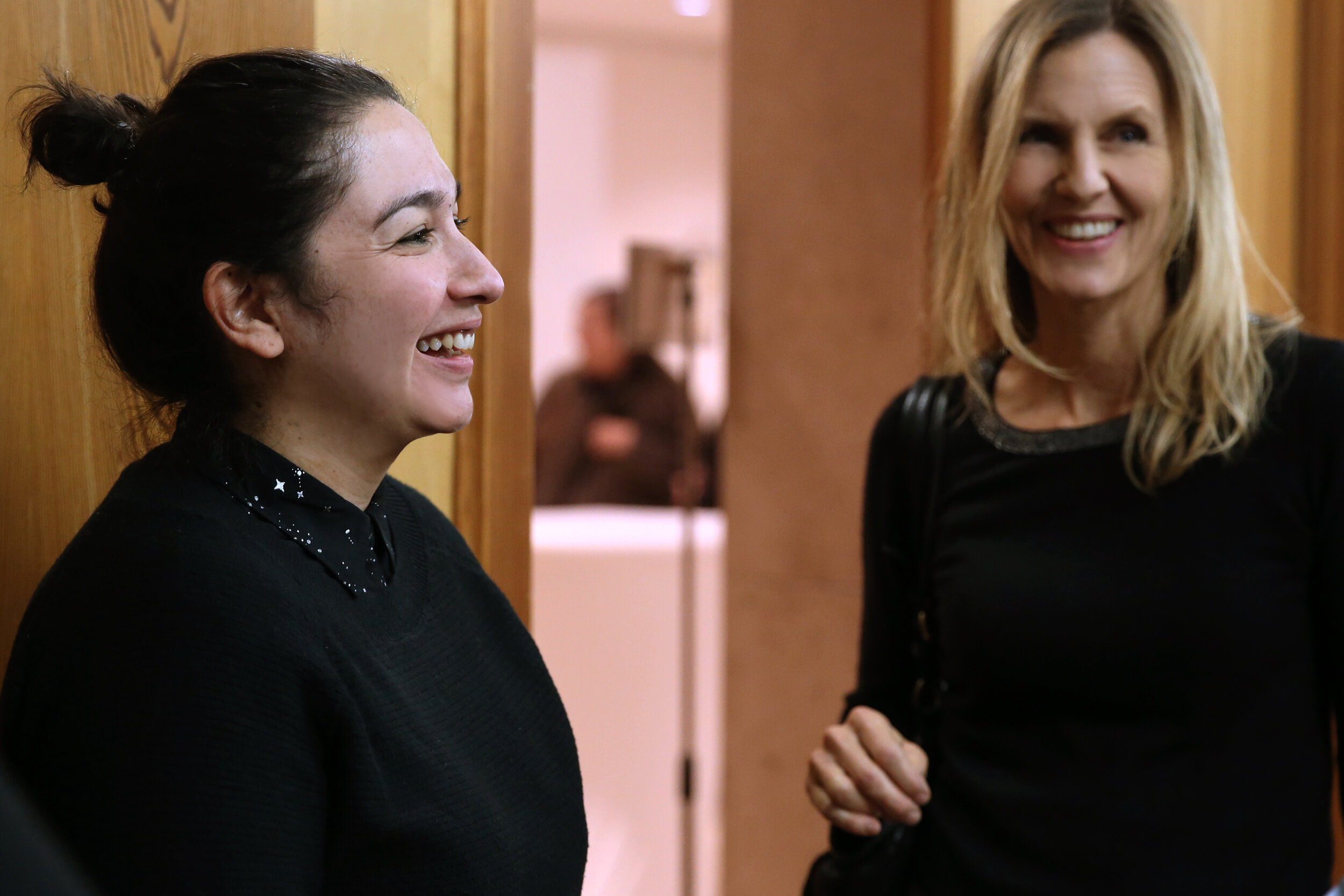
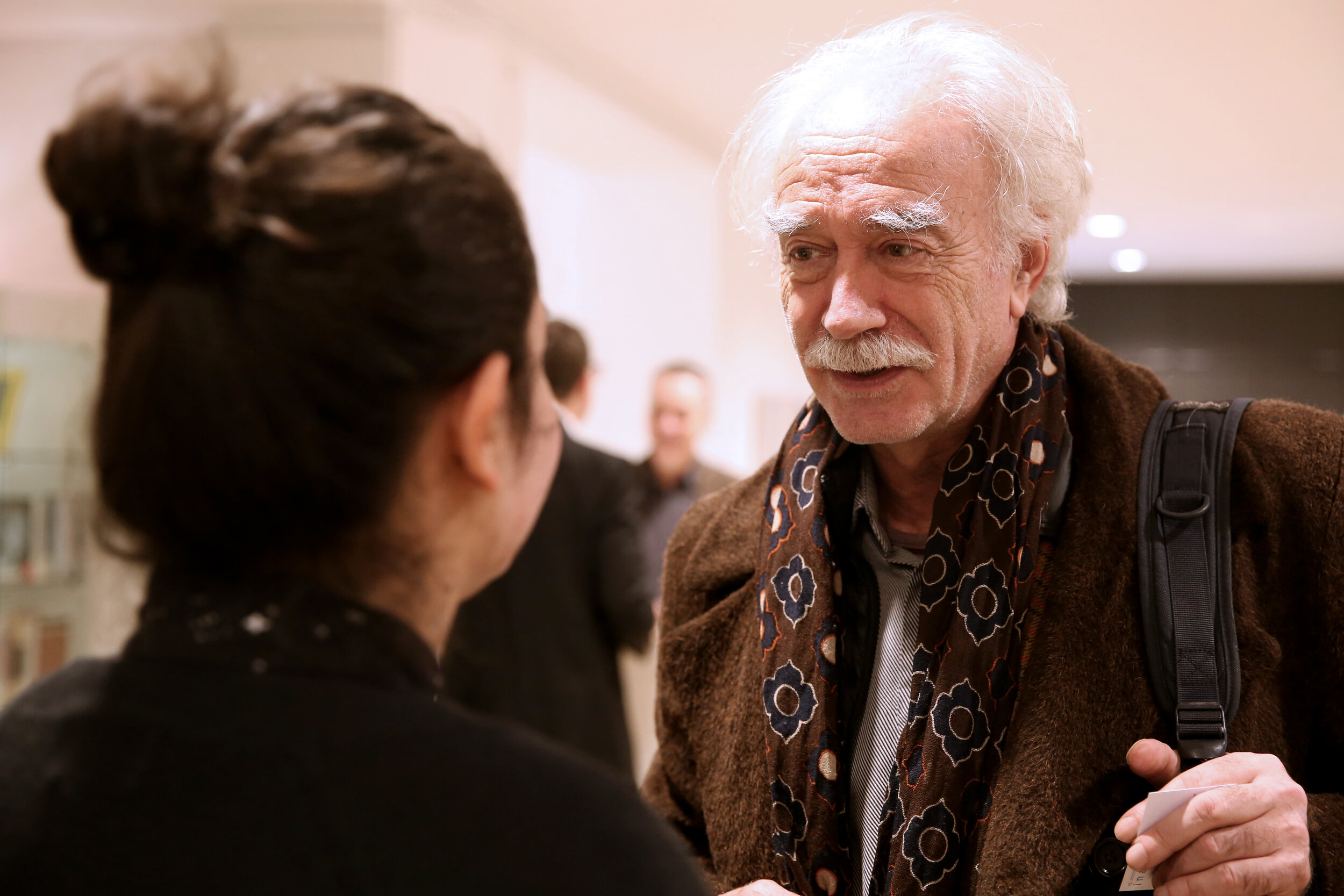
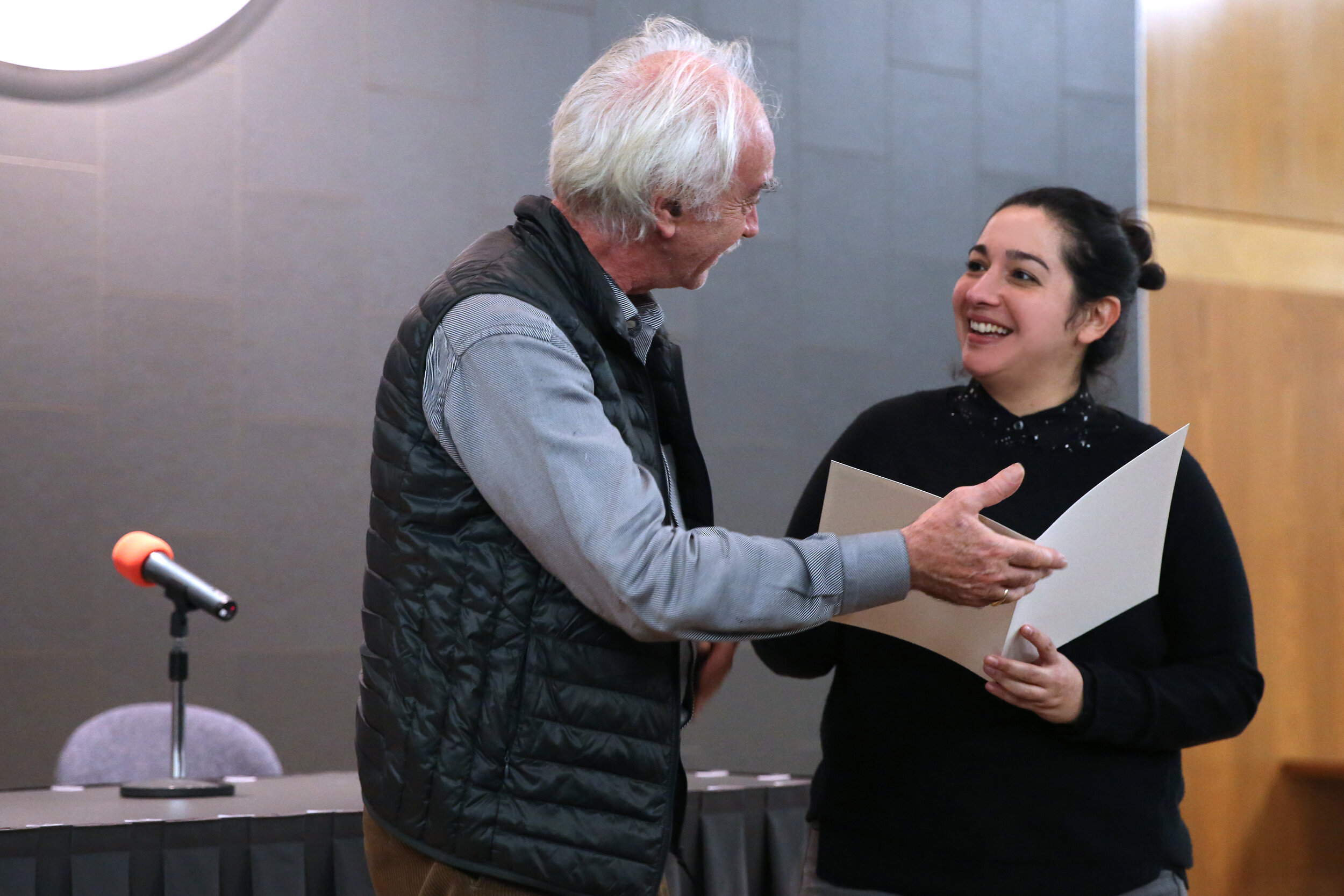
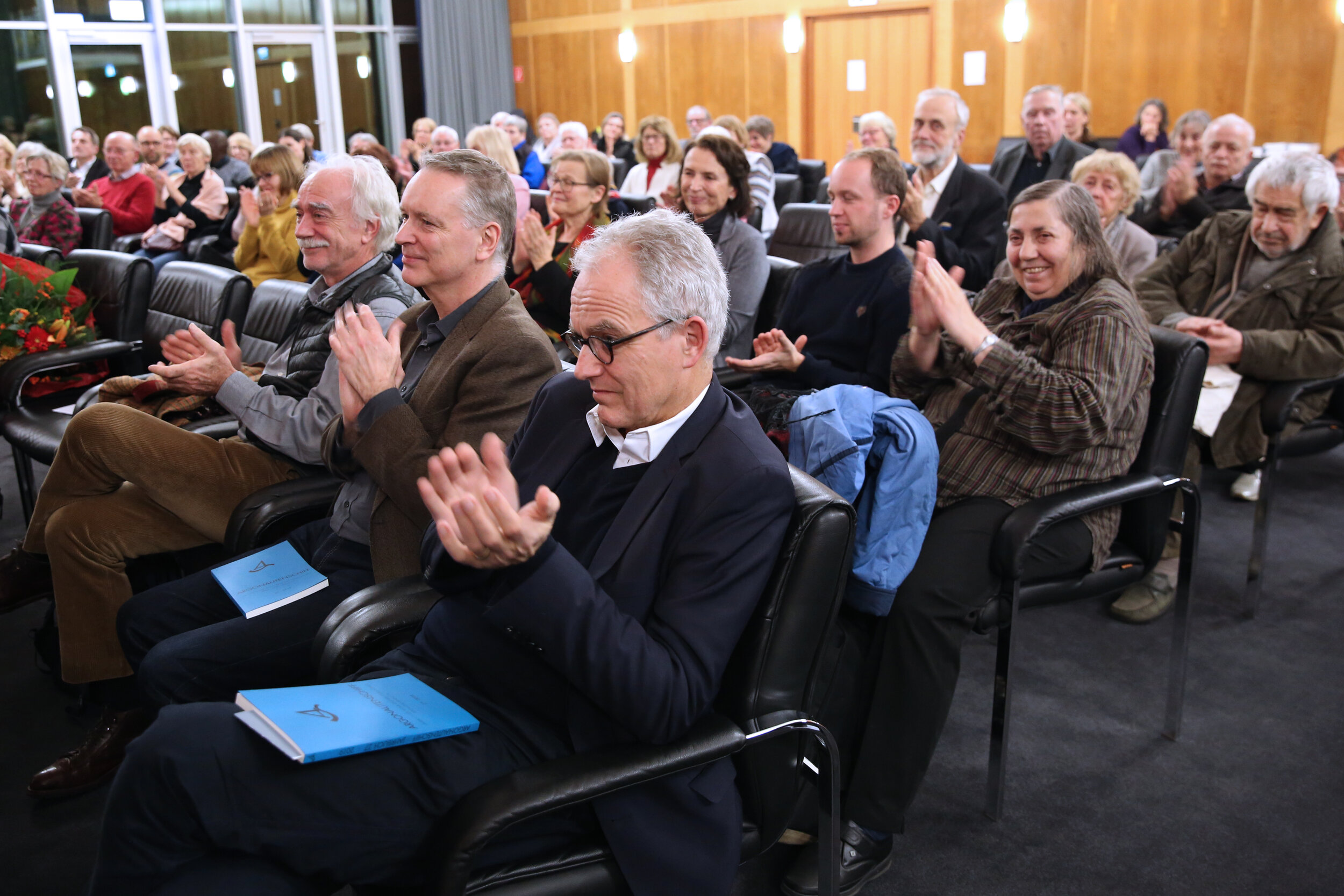
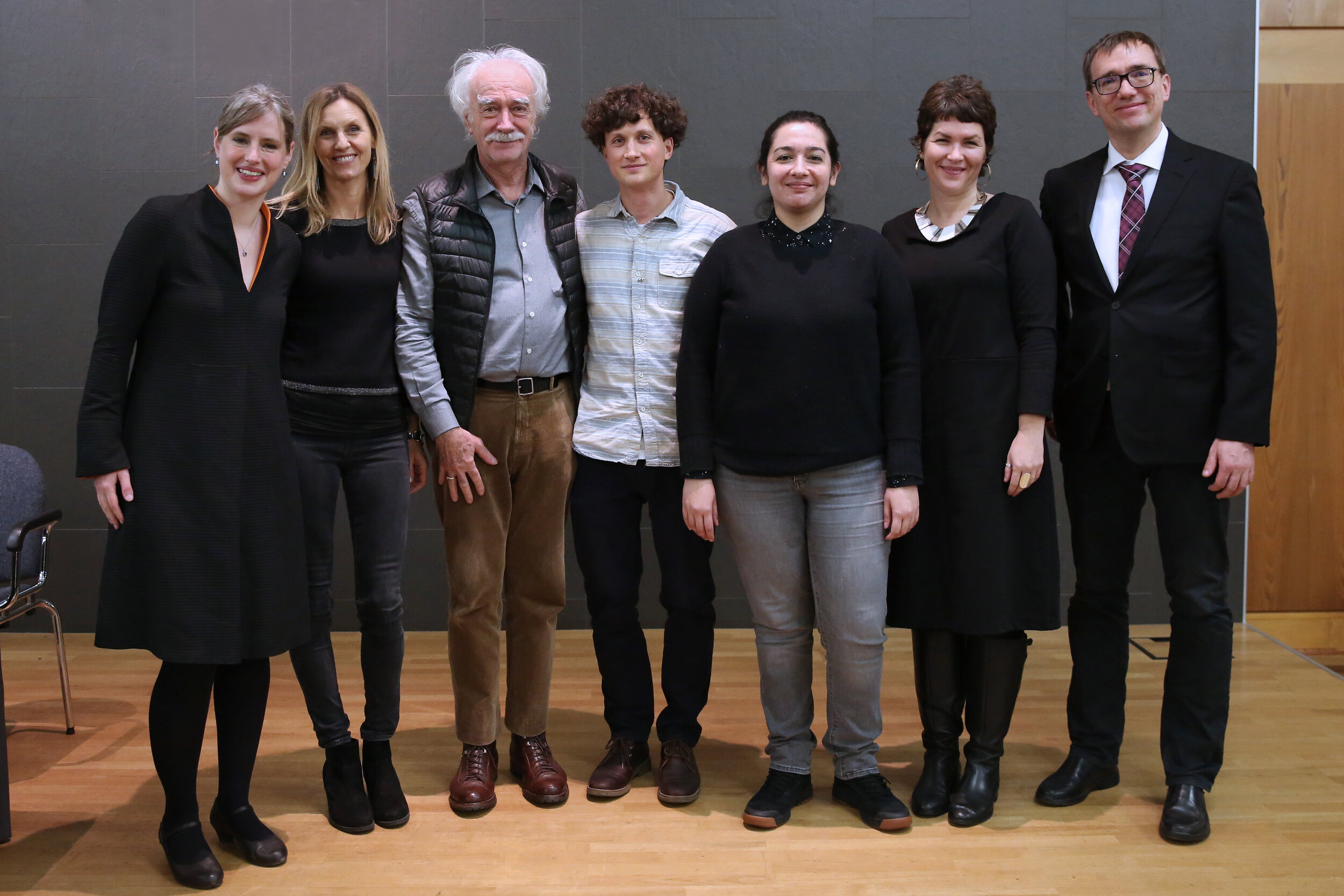
Fernanda Melchor was born in 1982 in Veracruz, Mexico. She is widely recognized as one of the most exciting new voices of Mexican literature. In 2018, she won the PEN Mexico Award for Literary and Journalistic Excellence and in 2019 the German Anna-Seghers-Preis and the International Literature Award for Hurricane Season.
Sophie Hughes is a translator from Spanish. In 2019 she was shortlisted for the Man Booker International Prize for her translation of Alia Trabucco Zerán’s The Remainder. Her translation of Fernanda Melchor’s Hurricane Season is published by New Directions in March 2020.
Banner image courtesy Anna Seghers-Stiftung, ©Charlotte Fischer www.charlottefischer.de




